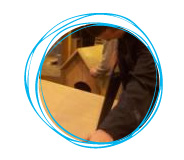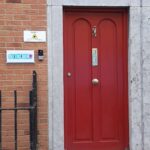Click on the link to read more about each activity:
We try to discover the inherent talents and skills in each young person and facilitate them to work towards their full potential. Scroll down the page to read more detail about what we do.
We try to discover the inherent talents and skills in each young person and facilitate them to work towards their full potential. Scroll down the page to read more detail about what we do.
Meeting clients on the streets in their own environment provides Outreach with an opportunity to monitor early school leavers and detached youth. Additionally street-work acts as a gateway to services provided by our project. This creates a safer working environment for staff through recognition on the streets. Streetwork allows for a more personal contact with the client and also allows us to build relationships with the community, which helps us to keep abreast of what is happening at grass roots level for the young people with whom we work.
Group Work is provided to clients assessed as ready to progress beyond one to one work. Group work is issue or task based with the primary aim of promoting social skills, socialisation, co-operation and team building. This allows for the reintegration of young people into mainstream provision.
All of our programmes can be offered to individuals or groups. Groupwork is particularly beneficial with the older clients, especially those being released from extended spells in custody. We currently have two established groups, one meets once or twice a week for soccer and the other meets once a week to go fishing.
As groups build up to no more than 3 or 4 we introduce activities that are group orientated and challenging. The aims of the Outdoor Adventure Programme are to learn how to overcome adversity and to enhance personal and social development and the development of life skills. This programme can also be used with individuals
At present there are two main components to the Workshop Programme: Mechanics and Carpentry.

We are running a Car Crime Programme that engages targeted young people with a history of motor related offences. We use a restorative approach to challenge their attitudes towards their offending behaviour, the impact on their victims, their community and themselves and we also try to channel their love of engines into a more positive outlet.
The Mechanics Programme teaches the young person the practical elements of car maintenance, but it also shows the young person how dangerous a car can be when driven at speed and in dangerous circumstances. We also use the Wrecked.ie programme produced by the Road Safety Authority which is a CD based programme using real life stories to show the true consequences of events that happen every day on our roads. A local Garda Diversion Project is also using the Mechanics Programme to keep their Quad Bikes and Motorbikes maintained, and in exchange they allow our clients to use their facilities as an incentive to drive safely in a controlled environment.
A training manual has been developed for delivery of the programme to ensure consistency and a continuing high level of engagement. It is hoped that this manual can be used at national level in areas where there are high levels of car related crime. We also use our own short film, entitled Joyride, which won the All Ireland Award for Best Documentary by Radharc, to show the real impact of ‘joyriding’. This was produced and filmed locally by our clients which has a greater impact when seen by their peers.

This programme was developed to meet a need for more workshop-based activities for young people who do not enjoy outdoor, adventure type activities. The young people involved make a range of pieces like kennels, jewellery boxes etc., and two young Traveller men completed a scaled down traditional covered Traveller wagon.
This programme only uses hand tools and traditional methods and encourages the young person to listen to instructions, use their imagination to design and build their own creations, problem solve and work in a workshop environment with regard to health and safety and other considerations.
One young person used this programme to build a mounting block for a local equestrian centre as part of his reparation through the restorative justice process. The young person took part in a Family Conference, supported by Outreach, with the owner of the centre and the outcome was the agreement to build the mounting block.
Southill Outreach have provided an Inreach programme for a number of years to St Patrick’s Institution, Trinity House and Oberstown, carrying the ethos and philosophy of our work to those who find themselves in places of detention.
Two staff visit the detention centres and schools on a bi-monthly basis. The aim is to advocate and support clients during periods of detention, to develop an exit strategy to enable clients to re-integrate into the community and divert them from further offending behaviour.
Southill Outreach have developed a modular programme that will be offered to all young people during their time in detention and on their release.
Any young people who show an interest in art or creative pursuits can avail of a number of programmes with Outreach. These include graffiti, painting with watercolours, visiting local galleries and museums, model making and any other art forms that the young person shows an interest in.
There are two elements to the Equine Programme, one is Equine Assisted Therapy which helps the young person use their love of horses to look at how they build relationships, develop empathy and relate to others.
The other is a Horse Care Programme which is a programme that teaches the young person the basic elements of horse care, how to look after the needs of the horse and how to ride the horse properly. This includes helping to muck out the stables, groom the horses and all the practical work that goes into responsible animal husbandry.
Many young people that we work with have a great interest in horses and show great promise in their ability to handle and ride the horses. This basic programme can lead to Fetac accredited courses for those who are interested.
Many of our clients, especially boys in the 15 to 18 years age range, are very conscious of body image and want to do gym programmes. We have devised a programme that looks at all aspects of a healthy lifestyle and includes gym membership for those who are eligible and who engage well in the programme.
Areas covered include:
• Nutrition
• Basic cooking skills (including buying the ingredients – budgeting)
• Effects of steroids, alcohol, drugs etc on the body and mind
• Exercise Programme
We link with other groups that work with young people and who have resources that we do not have, e.g. The Scouts. This enables us to continue to offer activities like Kayaking, Canoeing, Camping etc.
A number of young people avail of our facilities to practice the Driver Theory Test, prepare CV’s on our computers, drop in for a chat etc., and they also find it a safer environment in which to pursue their interests which they may not be comfortable or confident enough to do elsewhere.
There are a large number of clients who cannot avail of the programmes we offer and these young people need a high level of one to one support. There are a number of clients who are under 18 and homeless, out of any kind of structure and Outreach is their only point of contact on a regular basis. They do not usually have phones or any way of being contacted, therefore we find them on the streets and work with them to ensure they are fed, clothed appropriately and in touch with any services that can help them. We accompany them to Social Work meetings, to the Homeless Unit and to any other support services as may be deemed necessary.
We work with clients at all levels to ensure that they attend Probation meetings, Court dates, that they sign on in Garda Stations on time and for those on Temporary Release from Detention Centres we ensure that they journey to Dublin weekly to sign on at the prison.
Every young person that we work with has an individual plan put in place that is unique and responds to his or her individual needs. We work with the young person at their level and empower and enable them to make informed decisions concerning their future, from the day they are referred we are working towards the day that they are disengaged from us, whether we refer them on to other services or they no longer need our services. We have a counsellor who attends regularly and works with a number of clients.
As a result of the work we do with young people we find ourselves helping the families to cope with the effects of their children’s offending and anti-social behaviour. This is especially true of those whose children have been in detention. We have a Parent’s Support Group that meet regularly to support each other and discuss their experiences.
We also find that, although there are many very good parenting initiatives in the area, a lot of the parents that we work with do not have the capacity to attend without some pre-development work. We work with these parents to build their confidence and prepare them to work in a group in order for them to avail of the parenting programmes run by Le Cheile and other agencies.
 Southill Outreach
5, Michael Street,
Limerick
Southill Outreach
5, Michael Street,
Limerick